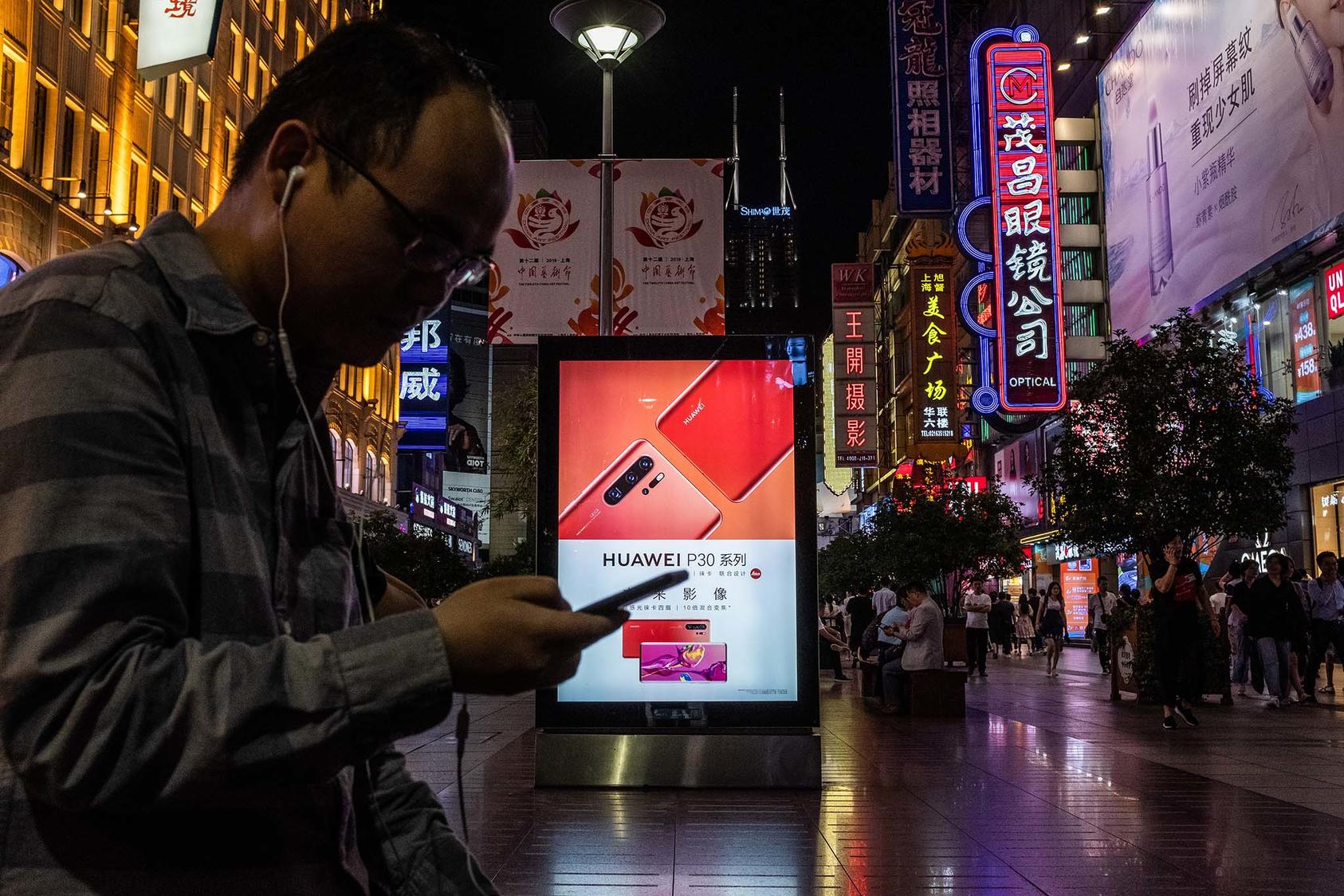The Evolving U.S.-China Tech Rivalry in Africa
Huawei’s mobile operating system sets up a battle between U.S. and Chinese tech firms over what Africans can hear, read and say.
A battle is unfolding between United States and Chinese tech firms over who will control what millions of people in Africa can see, hear, read and say.

Today, most African mobile subscribers use Google’s Android operating system on Chinese-brand smartphones — an arrangement that gives consumers access to affordable handsets and the wide world of software, apps and communication tools.
But starting soon, according to different leaks, Chinese tech giant Huawei could change Africa’s mobile ecosystem with the release of its own mobile phone operating system, Harmony OS. The launch of Harmony represents the first major Chinese foray into the world of operating systems that two United States companies, Apple and Google, have dominated to date.
Huawei began seriously developing Harmony in May 2019 after the Trump administration sanctions banned Huawei from U.S. networks, including access to Android updates and the Google app store.
The maker of an operating system has tremendous power to shape what its platform will allow. Apple and Google quietly exercise influence over software and content on their devices. Both companies, for instance, banished the app Parler from their stores after concerns about right-wing extremism. Apple has also banned Telegram and Infowars in the past, while Google did not allow political ads in the weeks before the U.S. presidential election last year.
Now Huawei Will Have That Same Power
Harmony marks the first time a Chinese company will decide what kind of software, content and communication tools will be accessible on smartphones.
We do not know whether Harmony OS will allow channels currently banned in China — the list would include Twitter and BBC News, for instance. And it’s not clear whether African e-commerce platforms like Jumia, which relies on Google Maps, would still work on phones that run Harmony. China’s Baidu Maps has long sought to compete with Google Maps, and it is likely that phones with Harmony will be primarily dependent on China’s Beidou Satellite Navigation System (BDS) rather than the U.S. Global Positioning System (GPS).
Ultimately, some of these decisions are out of Huawei’s hands. For instance, Huawei reiterated its desire to keep Google apps on its handsets last year, but the U.S. bans remain and they will prevent users from downloading Google apps or Facebook-owned services directly onto Harmony phones. This is not an issue in China, where Google and Facebook are already blocked, but it does matter for Huawei’s international markets and other international smartphone brands.
Harmony may Soon Expand Beyond Huawei Phones
Harmony will initially release exclusively on Huawei devices, but the company plans for broader use by third-party manufacturers. Although Huawei handsets only make up about 9 percent of the African smartphone market, Chinese brands overall make up more than 64 percent of Africa’s smartphone market. The numbers are similar in other low-income markets like Southeast Asia and Latin America.
It takes time to attract developers and create apps — and that means Harmony OS will begin life as a less-appealing option than Android OS. Windows OS is a cautionary tale of a mobile operating system that failed to attract the customers and developers necessary. Chinese brands like Oppo and Xiaomi will be waiting to see how Harmony works out for Huawei before adopting the new OS, but this also depends on the Chinese government allowing them to keep using Android OS.
If Harmony succeeds where Windows failed, then it’s conceivable that China’s government could ban Chinese smartphone companies from doing business with Google Android. It may regard this as a commensurate response to Huawei being cut out from Android and an opportunity to encourage the adoption of Harmony OS among other Chinese brands.
Further, if Harmony rolls out across more Chinese smartphone brands, will low-income consumers in Africa and elsewhere pay a premium to keep their most popular apps, or switch over to less familiar Chinese social media and satellite systems available on the cheaper handsets? With many Chinese smartphones priced under $100, consumers might prioritize affordability over functionality.
And lastly, if a Samsung phone cannot communicate over WhatsApp with a Transsion phone, then does this mean that Africa’s social media platform of choice will shift to China’s most popular messaging app, WeChat? Such a transition could let Chinese authorities monitor and censor the conversations of billions of people beyond China’s borders. This type of censorship has already been noted in WeChat users’ conversations in the United States, for instance.
African Consumers will Decide
For the time being, these are hypothetical scenarios. But these questions also raise a number of broader points. To date, the narrative around Chinese tech in Africa has focused largely on the role of the Chinese government, or African governments, and less on the agency of Africans and the role African consumers play in determining the future of Western and Chinese technology on the continent.
Moreover, Chinese companies like Huawei and Transsion do not succeed in world markets purely because of Chinese subsidies — or because they utilize the intellectual property of their Western competitors, as is often the complaint. Research suggests that although price and functionality are important, success for these brands also comes down to competitive strategies at the firm level, such as hiring and training local staff, or marketing strategies that specifically target African consumers.
Smartphones have become an important personal communication tool, but governments, nongovernmental organizations and other civil society institutions also rely increasingly on mobile communications and messaging. The conflicts of interest between Chinese and U.S. big tech may interest all on the African continent.
This post originally appeared as “Huawei is trying to avoid U.S. sanctions. That may change the U.S.-China tech rivalry in Africa” in The Monkey Cage at The Washington Post on April 30, 2021.



